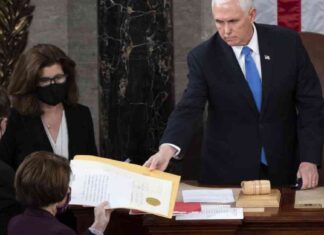Israeli PM Faces Mounting Pressure as US Prepares Final Ceasefire Deal
The pressure on Israeli Prime Minister Benjamin Netanyahu to agree to a ceasefire deal and bring home surviving captives from Gaza continues to mount as calls for action grow louder. The recent discovery of the bodies of six captives taken by Hamas on October 7 has sparked outrage and renewed demands for a resolution to the conflict.
General Strike Disrupts Industry and Services
A general strike called by the country’s largest labour union, Histadrut, has disrupted various sectors of the Israeli economy, including industry, services, and education. This strike, the first since the start of the war in Gaza in October, was aimed at putting pressure on the government to secure a ceasefire deal and bring remaining captives home.
The strike, which was backed by Israel’s main manufacturers and entrepreneurs in the high-tech sector, aimed to disrupt key areas of the economy such as banking, healthcare, and transportation. Ben Gurion airport, Israel’s main air transport hub, was closed for two hours as part of the strike, causing disruptions to travel plans.
Rallies and Protests Demand Action
Huge rallies were held on Sunday calling on Prime Minister Benjamin Netanyahu to secure a ceasefire deal that would bring the remaining captives home. Both Israel and Hamas have been at a standstill, with each side blaming the other for blocking an agreement.
The Hostages and Missing Families Forum, representing the families of those held in Gaza, has criticized Netanyahu for failing to secure a deal to halt the fighting and bring their loved ones home. The recent deaths of six captives, including an Israeli-US citizen, have further fueled calls for action.
US Intervention and Final Ceasefire Deal
US President Joe Biden is reportedly working on what US sources have labeled a “final” proposed ceasefire deal. White House national security adviser Jake Sullivan has indicated that Israel and Hamas will be presented with a “take it or leave it” proposal in an effort to bring an end to the conflict.
The US could potentially use the ongoing protests and strikes in Israel to increase pressure on the Israeli government to reach a resolution. With the upcoming US elections, there may be an opportunity for American officials to leverage their influence and push for a ceasefire agreement.
The negotiations, alongside officials from Qatar and Egypt, have been working towards a ceasefire deal that would bring an end to the violence and secure the release of captives held in Gaza. The pressure is mounting on all parties involved to reach a resolution and bring an end to the suffering of those affected by the conflict.
As the situation in Gaza continues to escalate and tensions rise, the need for a swift and decisive ceasefire deal becomes increasingly urgent. The international community, including the United States, is closely monitoring the developments and working towards a peaceful resolution to the conflict.
The coming days will be crucial in determining the outcome of the negotiations and the fate of those still held captive in Gaza. The pressure on Prime Minister Benjamin Netanyahu to act swiftly and decisively is at an all-time high, with the hopes of bringing an end to the violence and securing the safe return of those affected by the conflict.



























